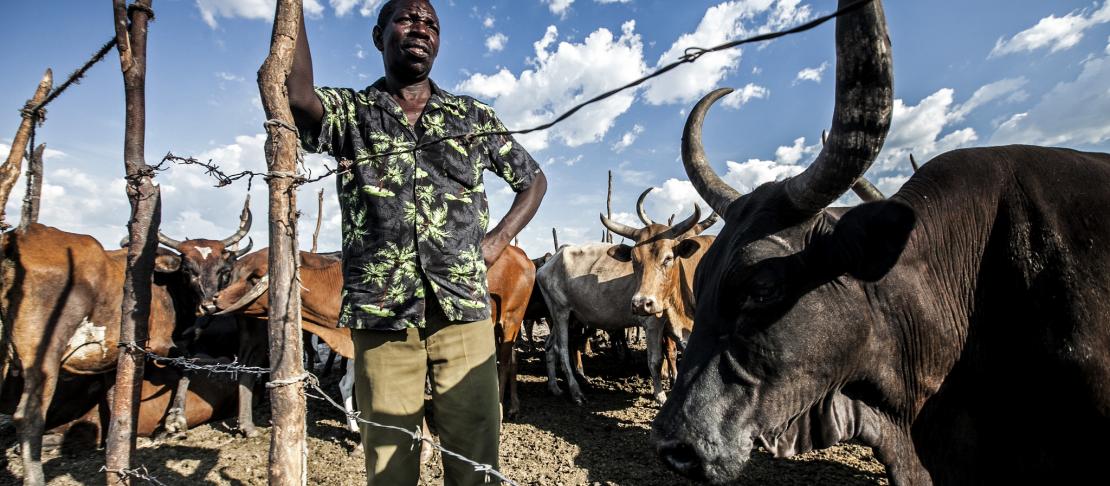SB42 Side Event: Livestock-related NAMAs in Costa Rica, Kenya and Mongolia

Side event to the 42nd sessions of the Subsidiary Body for Implementation (SBI) and the Subsidiary Body for Scientific and Technological Advice (SBSTA).
Support for mitigation in the agricultural sector, including NAMAs, is expected to increase in the context of the SBSTA, COP and the submission of Intended Nationally Determined Contributions (INDC). The objective of the session is to showcase progress and pathways for countries interested in climate finance for agricultural mitigation through livestock.
Agricultural NAMAs finance reduced emissions while also supporting agricultural production and livelihoods. This side event focuses discussion on active NAMA proposals that will reduce emissions while improving livestock productivity in Costa Rica, Kenya and Mongolia. Experts will address monitoring, reporting and verification (MRV), public-private partnerships and financing opportunities.
Program
18:30 Welcome
Henry Neufeldt, World Agroforestry Center
18:35 Status of livestock NAMA in Costa Rica
Giovanna Valverde, Government of Costa Rica
18:45 Dairy and livestock NAMAs in Kenya and Mongolia
Timm Tennigkeit, Unique Forestry and Land Use
19:00 Monitoring, reporting & verification in NAMAs, SAMPLES data, tools
Henry Neufeldt, World Agroforestry Center
19:10 Perspectives
- Manyewu Mutamba, Southern African Confederation of Agricultural Unions (SACAU)
- Rutger de Witt Wijnen, Green Climate Fund
- Bernard Giraud, Livelihoods Fund, formerly Danone (via Skype)
- Jason Funk, Union of Concerned Scientists (TBC)
19:30 Moderated discussion with all panelists
19:55 Summary and closing
20:00 Refreshments
Presenter information
Bernard Giraud is co-founder of the Livelihoods Fund. Officially created in 2011 by Danone and other large corporations, the Fund mobilizes the carbon finance mechanism to support large-scale projects in ecosystem restoration, agroforestry or access to energy that generate long-term revenue and food security in rural communities and carbon credits to partner companies.
Manyewu Mutamba is an economics and policy analyst at the Southern African Confederation of Agricultural Unions (SACAU). With degrees in environmental science and agricultural economics, Dr. Mutamba provides agriculture and farmer development support and engages in climate change, food security and rural development issues. He manages multi-country projects in southern Africa.
Henry Neufeldt is head of the climate change unit at the World Agroforestry Centre (ICRAF) in Nairobi, Kenya. He holds degrees in environmental sciences and soil science from Bayreuth University (Germany). Henry’s research includes agricultural development in smallholder systems, greenhouse gas mitigation in agricultural systems, climate finance, climate policy and technology transfer, and bioenergy.
Timm Tennigkeit is Managing Director of UNIQUE Forestry and Land Use and a climate finance expert with in-depth practical experience in the development and implementation of climate finance projects in the agricultural sector in Africa and Asia. Timm is an author of the CCAFS/FAO documents on agricultural NAMAs and is involved in livestock NAMA development in Kenya, Kyrgyzstan and Mongolia.
Giovanna Valverde is an economist and master in international trade and microfinance. She has served as a diplomat for Costa Rica for the past 13 years, including as Director of Foreign Affairs of the Ministry of Agriculture for 4 years and national coordinator for the livestock NAMA for two years. Giovanna is currently the Lead Negotiator for Costa Rica in the UNFCCC.
Rutger de Witt Wijnen joined the Green Climate Fund as General Counsel in September 2014 with specializations in finance and energy law, including carbon finance and climate change law. He became involved in climate change/carbon finance law in 2001, and has acted on behalf of governments, multilaterals, IFIs and private sector companies in a variety of climate change matters.
For more information, please contact:
Julianna White, Program Manager, Low Emissions Agriculture, CCAFS


